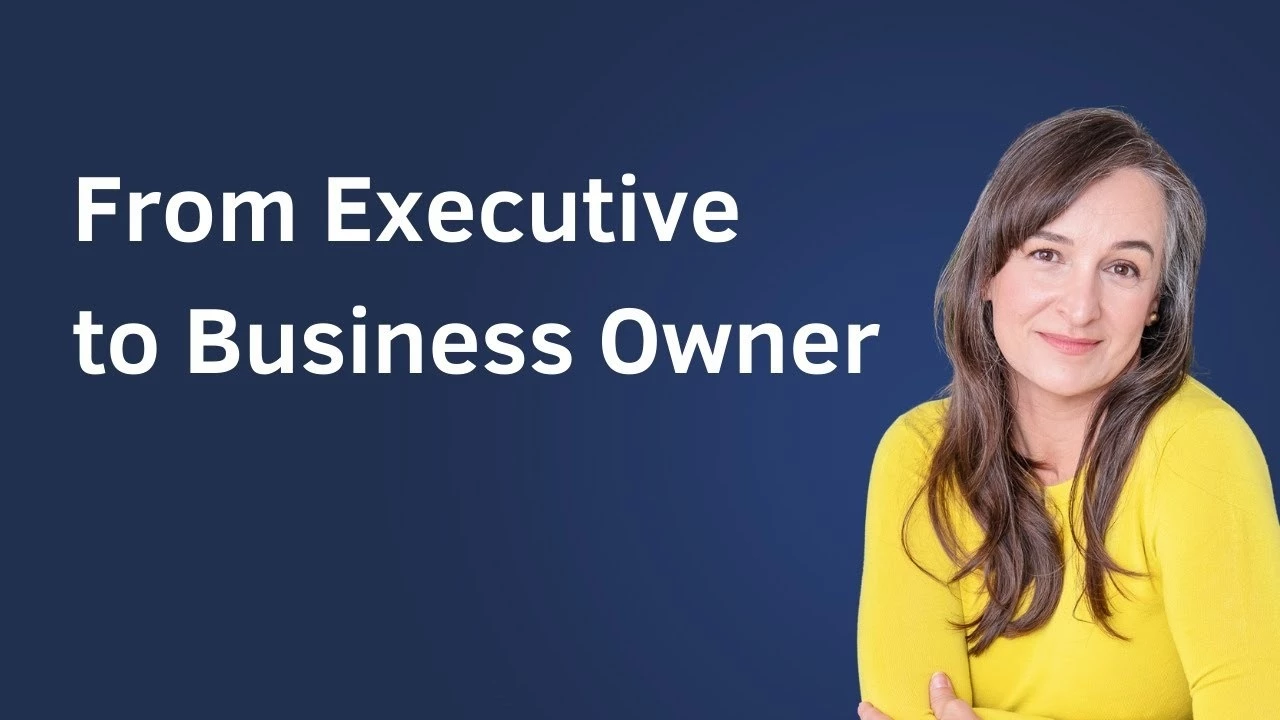Episode 79 - Ten Tips on How to Make the Transition From Corporate Job to Business Owner

10 tips on transitioning from a corporate job to being a business owner
I don't claim to be a small business consultant. I love career planning and coaching corporate professionals. However, during the coaching process, a client will eventually decide they want out from time to time! When that happens, I share how I transitioned from a corporate employee to a business owner since I have personal experience of starting a business twice. I learned a lot along the way.
This is most definitely a one-off episode. So if you are curious about what I've done to grow my business, how I do it now, how it's going, the tools I use, etc., then listen to this episode because I don't plan to talk about this anymore for a long time!
And this is the truth: I have a handful of clients at the moment who I'm sure have signed up with me because of how I managed to grow my expertise and start my business the way I did. They are doing a very similar transition (i.e., holding on to their corporate jobs until they are ready to fly solo!), and I love coaching them!
Here is the question I have for you: Are you ready to be a business owner? Is having a business a goal you want to work towards, so you can achieve it in a few years?
In this episode of The Job Hunting Podcast, I discuss the following 10 tips I recommend to help you transition from a corporate job to owning your own business in the future:
Resources mentioned in this episode
Do you have training material ready for online teaching? Then, learn more about Kajabi, the platform I use, and check if you should invest in this. I LOVE Kajabi and have built my entire website and learning programs using the platform. I have already converted many colleagues and coaches to using it. You can teach anything on Kajabi: music, farming, yoga... It handles everything: mailing this newsletter, CRM, payments, my website, and of course, my online teaching platform.*
Do you want a website? Here's my secret: Templates with everything you need: webpages, social media templates, all done for you, styled, branded, and easy to use. Yes, you can change the colors and photos.*
A link to the episode about my career story: 62. My career story: From immigrant to CEO.
Book a free discovery call with me if you consider getting a private coach to support your next steps.
Timestamps to guide your listening
Transcript of this episode
About the Host
Hello, I’m Renata Bernarde, the Host of The Job Hunting Podcast. I’m also an executive coach, job hunting expert, and career strategist. I teach professionals (corporate, non-profit, and public) the steps and frameworks to help them find great jobs, change, and advance their careers with confidence and less stress.
If you are an ambitious professional who is keen to develop a robust career plan, if you are looking to find your next job or promotion, or if you want to keep a finger on the pulse of the job market so that when you are ready, and an opportunity arises, you can hit the ground running, then this podcast is for you.
In addition to The Job Hunting Podcast, , on my website, I have developed a range of courses and services for professionals in career or job transition. And, of course, I also coach private clients.
Contact Renata Bernarde
I’m determined to help you! I want you to feel empowered, nail your next job, and have the career you want.
My free resources for job hunters: The Optimized Job Search: Weekly Schedule & Masterclass.
Learn more about my services, courses, and group coaching: RenataBernarde.com
